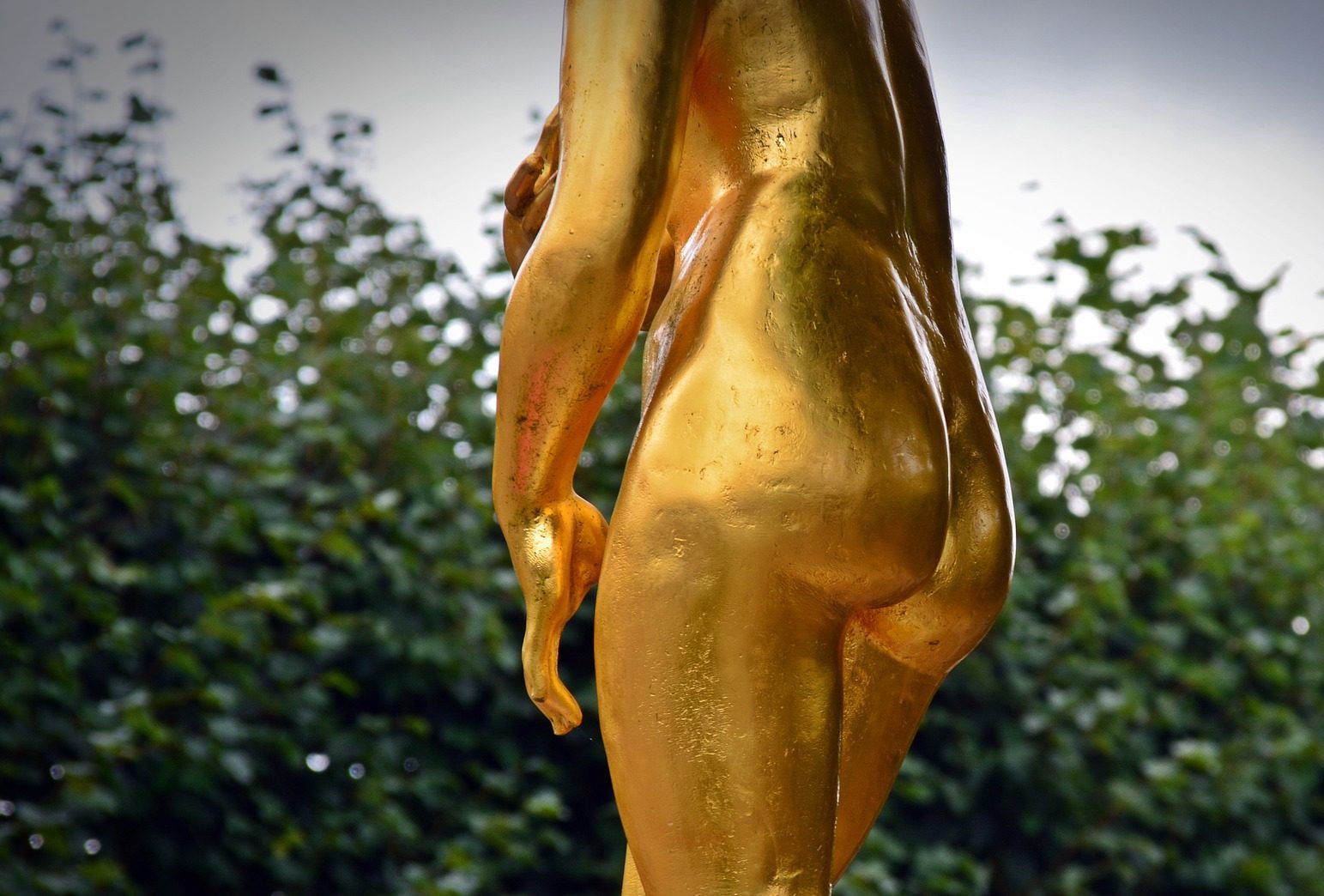interviews
Clare Sestanovich Writes from the Unanswered, the Uncertain, and the Unknown
The author discusses her new novel "Ask Me Again," the ecstasies of silence, the texture of long-term friendships, and Quaker meetings

Throughout her body of work, Clare Sestanovich’s prose asks the kind of questions that make you lean back—pondering daily paradoxes you’d never quite considered before—while her characters make you lean forward onto the edge of your seat. They’re riddled with intricacy and detailed depictions of people you recognize but were never quite able to know. But especially in reading her first novel, Ask Me Again, Sestanovich manages to recreate this experience of rocking back and forth on a chair, page by page, wonderfully trying not to fall off.
As in her debut short story collection, Objects of Desire, Sestanovich continues to grapple with existential concepts of the world and of the self in this new novel. Her characters’ lives ask questions of materialism, spirituality, and creativity—how do these ideas rub against each other?—while also depicting a changing consciousness, the nature of growing up, and the torn fabric of friendship—how do these experiences intertwine with one another?
In Ask Me Again, Eva and Jamie meet as two curious teenagers, both waiting in one of New York City’s emergency rooms. Throughout the book, Sestanovich follows their lives which deviate into completely different worlds but cross again at unexpected moments. While Eva embarks on a path of good grades, a respectable resume, all-nighters, philosophy courses, first love in a library, and a unique friendship with a young politician in D.C., Jamie refutes expectations and wanders to find homes in meditation retreats, street tents, a church, a warehouse, a painter’s studio. Ultimately though, these two have more in common than one might think: they are both ceaslessly searching for a guide and for a right answer to the question of what it means to grow up.
Throughout the interview, Sestanovich and I discussed how her short stories impacted the writing of this novel and how the ecstasies of silence, weather of long-term friendships, Quaker meetings, and “the pursuit of capital T truth” all intersect and eventually come together in the end.
Kyla Walker: Each chapter title in Ask Me Again is posed in the form of a question, and the novel’s title nods to this theme as well. It feels like you may be proposing that one definition of a novel is that it’s a series of unanswerable questions. Do you agree with this idea? And do you think questions can act as a guide through life, or are useful to literature in a different way?
Clare Sestanovich: Asking unanswerable questions is certainly what writing a novel feels like. Curiosity is my most reliable guide—maybe my only reliable guide—when I sit down in front of a blank page: I write to find out what I think. If I’d done all the figuring out in advance, the story itself would feel airless, artificial. There’s no way to overcome artifice altogether in fiction, of course, but I think as readers we can always tell whether the intelligence behind a narrative is a know-it-all or whether the author, like you, is on the edge of their seat, desperate to find out what’s going to happen, and how, and why.
You know the kind of person who will stand behind you during a card game, peeking at your hand and making dramatic noises, as if they know exactly what your next move should be? No one wants to read a book by that guy. If you’ll bear with the extended metaphor: the author is the one who deals the cards, but for the game to have any fun in it—any life in it—she has to give herself over to chance and risk and unknowability.
KW: Eva felt very close to my heart and to the questions I’ve been asking about fairness, faith, and fate for years now. I loved how the different perspectives on materialism and spirituality were portrayed throughout the novel in a natural, subtle style without didacticism or bias towards one vs the other. Was this something you set out to do from the beginning? Or were you pleasantly surprised by modes of thought/consciousness you believed you didn’t inhabit prior to writing the novel?
Asking unanswerable questions is certainly what writing a novel feels like.
CS: I hope this is a book that gets people to think about beliefs—where they come from, how they change, what they feel like—which is very different from a book that gets people to believe anything in particular. Novels can do that of course—change people’s minds—but I think they do it best when they do it subtly, not strenuously. Another way of putting this is that Eva is not a paragon of virtue—nor is any other character in the book. None of them possess all the values or articulate all the opinions that I think readers ought to. Some of them have good ideas but bad personalities. Others have the right intentions but the wrong tools. Some seem deluded, others confused. Eva in particular is deeply, painfully ambivalent when it comes to deciding what she believes. I expect this will make her a sometimes frustrating character for readers for the same reason it makes her an ideal vessel for me as an author: her mind is always changing. I pay such close attention to these changes because I think they have something to tell us about how we become the people we want to be—or how we fail to. I can’t think of any more dramatic or important plot than that.
KW: I noticed a few similarities between Eva’s college experience in the novel and your wonderful short story “Annunciation”—especially a parallel between Eva’s best friend, Lorrie, and Iris’s best friend, Charlotte, in the way that they serve as guides or mentors to becoming a “real” adult. What are the dangers or advantages to having young guides at such an impressionable age for these characters?
CS: I’m glad you use the word “guide.” It’s an important one in the book, as readers will perhaps most clearly discover when they get to the very last page. But there are guides all throughout the book—people who tell you or show you how to live. Both Eva and Iris, the character in “Annunciation,” crave this sort of instruction. To be told, to be shown. Or they think they do. That’s a really interesting tension, to me. If you’re the kind of person who has a lot of big, unanswerable questions about the world—which, as we’ve discussed, is the kind of person this book is all about—then in some ways you have to believe that someone else has the answers. Life would be unknowable and intolerable otherwise. So you seek out a pastor or a politician or a teacher or just a friend with really strong opinions, and your own path through the world starts to feel ever so slightly easier because there’s someone right up ahead, telling you what music to listen to or which candidate to vote for or how to repent for your sins. But you’re only asking all your big questions because you’re very observant and very curious, and the more you watch and wonder, the less satisfying any one guide is going to seem. You’re following their path but you’re aware there’s a whole mountain to explore. Do you really want to be told exactly how to get to the top?
KW: Did you always envision Eva and Jamie’s story as a novel—especially one crossing years and taking up a larger time frame/more space than a short story does?
CS: I knew I wanted to try to describe the texture of intimacy across time—in particular, how it weathers change. Relationships we form in youth face especially inclement weather. We change so much and so fast! What are you supposed to think when your best friend drops out of college? What are you supposed to do when he finds God? It’s never as simple as wanting to go back to the way things were, because as much as we may wish for other people to remain static, predictable versions of themselves, we count on change within ourselves. Would any 22-year-old turn back the clock and be 16 again, with all the pain and powerlessness involved, for the sake of reclaiming an old friendship? In this sense, loss and remorse mix constantly with growth and hope. One of the common truisms you hear when you’re a young person is that you should “be true to yourself.” (It’s an especially common idea in the U.S., where the pursuit of authenticity has a practically religious fervor.) But being “true” to the force of change, both internal and external, can also involve, and sometime necessitate, real betrayal: of people you used to know and love, and even of the person you used to be.
KW: Eva’s yearning to be a correspondent seems to touch on this theme of the gap between the stories we are told and the stories we tell ourselves, and the importance for her about getting it right—getting to the essence of things, time, history, the present as much as we can. But how might Jamie conceive of this idea? And what might his trajectory say about how he feels towards “truth” by the end of the book?
Messy reality and pure truth don’t need to be perfectly reconciled.
CS: Ah, What Would Jamie Do? (Or think, or say, or feel?) A tantalizing question, and one that Eva spends a lot of time and energy trying to answer. From a certain simplified perspective, Jamie’s whole life seems to be devoted to the pursuit of capital T truth. He’s a high-school debate champ. He joins a political movement and then a church—both of which are driven by big ideas, essential values, unwavering principles. All this can give his life, or his lifestyle, a certain abstract quality. But from another vantage, he’s really all about action, not ideas. Why talk about truth when you could be handing out free Metro cards?
I don’t think Jamie ever resolves this binary, and that may be the most important lesson of his approach to truth. A kind of negative capability, in which messy reality and pure truth don’t need to be perfectly reconciled. “The gap” you describe, between stories and also, I would argue, between storytellers, is always the place where I try to challenge myself to go as a writer—the place of questions not answers, the place where meaning is created not calcified.
KW: Eva asks many questions but she also dispenses much wisdom. On page 204, she says: “‘You don’t have to be religious,’ she told Molly, ‘to wish you were a better version of yourself.’” Faith, or lack thereof, plays a huge role in this novel. How has religion shaped your way of thinking or style of writing, if at all?
CS: I’ve never had any sort of formal religion. (It’s funny, isn’t it, how we talk about “having” religion, as if you possess it. Or maybe as if you’re possessed by it?) But writing certainly has a devotional quality for me. It’s something I do every day, part dutiful ritual—I often have to make myself do it—and part authentic belief: I feel I’m generating, or maybe just channeling, real meaning in the process, though I couldn’t begin to tell you how. That combination of the mechanical and the ineffable can at times be a maddening, even seemingly oxymoronic, features of religion, but I also think it’s one of the most alluring. Faith, like art, really is a practice; you can’t avoid the practical. Repetition is not only required, it’s rewarded. You know exactly what you need to put in—work, prayer, a lot of hours—but you have truly no idea what you’re going to get out.
KW: The “silent party” that Eva attends in college is an amazing scene and a turning point for her. Admittedly, I’m curious—was this inspired by a real silent party you attended? And, more seriously, what can silence reveal about characters (and strangers) that language is unable to?
CS: I’ve never been to a silent party! But I’m glad you ask, because this actually relates in a surprising way to your previous question: silence and religion have been very intertwined in my life. I said I didn’t grow up with any sort of faith, but this isn’t quite right. I went to a Quaker school for nine years, and as you may know, in the Quaker religious service, called Meeting for Worship, you simply sit in silence—a silence that any member of the meeting is free to break by standing up and sharing a message with the group. It’s not quite a party, but it’s very beautiful—and often very profound. When we were in school, we considered the best meetings to be the ones in which the most people spoke—for the simple, secular reason that we were easily bored. And it’s true that the speaking was often what made the experience profound, but in retrospect, now that the substance of what people said has all but vanished from memory, it’s the silence itself that seems most memorable, most meaningful.
I’m especially fascinated by the way in which silence can become something we share. In everyday life, silence is often a deeply alienating experience. You know, the awkward pause that literalizes a disconnection between two people. But intentional, mutual silence feels like one of the purest states that people can inhabit together. We all know this: think about the special intimacy of the friend with whom you can sit in the car, not talking, and feel totally at ease. It’s a place of alignment and comfort, but also of thrilling possibility. You don’t need to say something, but you could say anything. Now multiply that feeling by five, ten, a hundred. That’s the ecstasy of a silent meeting or a silent party—or just a silent understanding.









